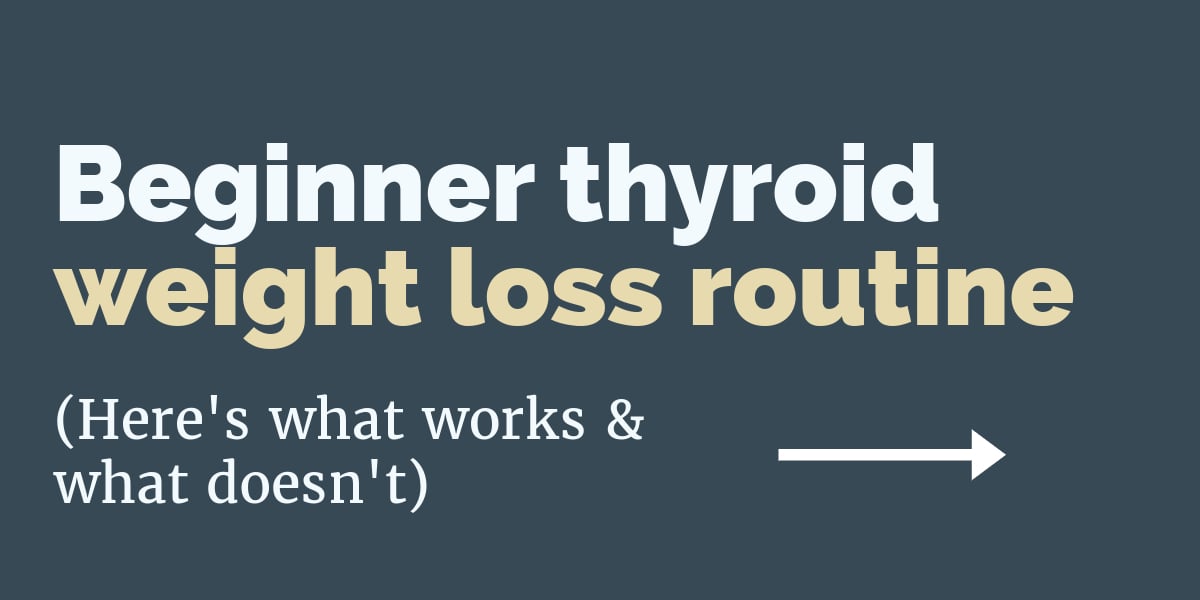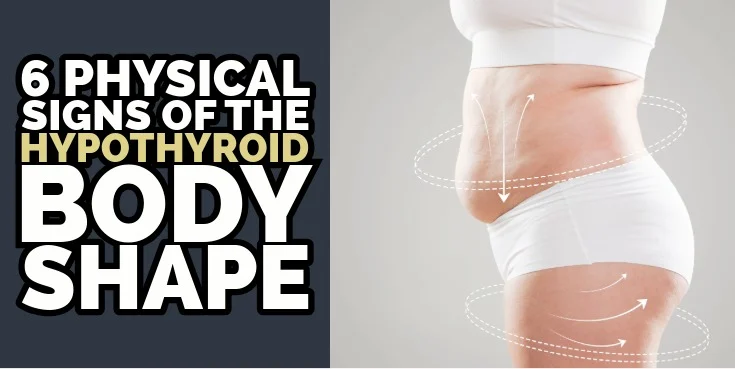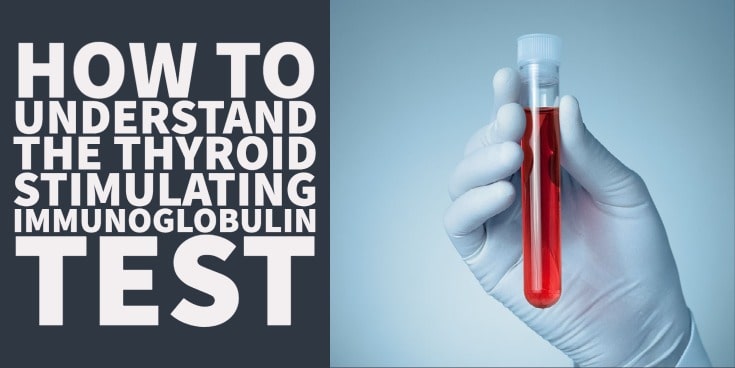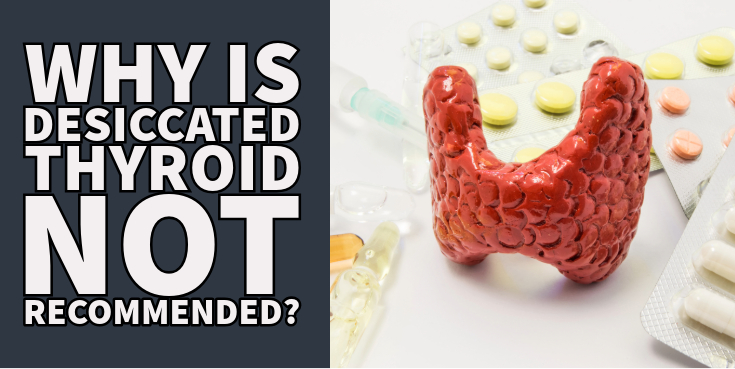Most thyroid patients believe that they will never be able to lose weight.
Yet I’ve helped thousands of thyroid patients lose weight over the last 9 years through some simple lifestyle and diet tweaks.
Here’s what works for thyroid weight loss (and why):
#1. Use fasting to reduce calories (not daily caloric restriction).
Yes, you will need to keep an eye on your calories if you want to lose weight; there’s no getting around that.
But how you cut those calories matters.
Daily calorie restriction (cutting back on your daily calorie intake) is a recipe for producing damage to your metabolism through a process called metabolic adaptation.
This type of calorie restriction causes your metabolism and your thyroid function to slow down, making long-term weight loss almost impossible.
But this is where fasting steps in:
Intermittent calorie restriction (ICR) allows you to cut back on your calorie intake without damaging your thyroid or your metabolism.
It’s actually very easy to put yourself into a calorie deficit by fasting once or twice each week for a 24-hour period.
In fact, a 24-hour fast will cut out roughly 280 calories each day if averaged throughout the week.
You need this calorie restriction if you want to lose weight, but you need to do it right.
The wrong way would be to reduce your calories by 280 each day.
The right way is to eat completely normal 6 days per week while fasting on the 7th day. That means nothing but water for that day.
This small change can be the difference between long-term weight loss and rebound weight gain for thyroid patients.
The bottom line?
DON’T restrict calories daily. DO fast for 24 hours once a week.
Source: https://pubmed.ncbi.nlm.nih.gov/33677461/
#2. Use zone 2 training as your primary form of exercise.
The intensity at which you exercise has a profound impact on thyroid function.
In fact, researchers have looked at thyroid function at various intensity levels and have found one important fact:
Almost all levels of exercise intensity benefit thyroid function.
But one intensity level stands above the rest, and that’s zone 2.
Not only does it rev up your thyroid, it’s also the intensity at which fat burning is greatest.
So if you are trying to exercise for thyroid weight loss, it’s where most of your time should be spent.
But let me be clear what it is and what it isn’t:
Zone 2 training is NOT a type of exercise, but instead a level of intensity that can be obtained through many types of exercises.
You’ll know that you’re in zone 2 if your heart rate is at 60-70% of maximum.
And if you don’t want to track your heart rate, you can tell if you’re there because you’ll be able to have a conversation with someone without feeling out of breath.
The only downside to zone 2 training is that you’ll need to stay there for longer periods of time.
The magic number for thyroid patients is at least 100 minutes each week (with the goal to get up to 180 minutes or 3 hours if you can).

When you train in zone 2, you put less strain on your thyroid and adrenals, making your workouts far more sustainable in the long term.
My personal recommendation is to get into zone 2 by simply walking.
You can get your heart rate to the necessary level by either walking at an incline or using a weighted vest.
If you use a treadmill, go at 3 miles per hour with a 15% incline for 30 minutes.
If you walk outside, use a 12-pound weighted vest and walk briskly.
The bottom line?
The right way to use exercise is a way to burn calories and improve your thyroid. Not as a way to make up for an unhealthy lifestyle.
Source: https://pubmed.ncbi.nlm.nih.gov/16380698/
#3. Eat enough carbohydrates (don’t restrict).
Restricting carbohydrates is one of the worst things you can do for your thyroid.
And in a world filled with low-carb diets like keto and carnivore, this is a common thyroid pitfall.
No, carbohydrates are not “essential”, but they are necessary for optimal thyroid function.
This is why we see a decline in body temperature and a rise in TSH and reverse T3 in long-term low-carb dieters.
But don’t take this as a green light to start pounding down refined or processed sugars.
I’m not talking about those types of carbohydrates.
Instead, I’m talking about real, whole food sources including fruits, fruit juices, and veggies.
Your goal should be to get 100 grams of high-quality carbohydrates each day from real, whole-food sources.
This 100-gram recommendation happens to align with the recommended 4-5 servings of fruit you should be eating anyway.
I’ve lost count of the number of thyroid patients who have used low-carb diets with some success, only to find out that several months down the road, they are dealing with a sluggish metabolism, low body temperature, and generalized fatigue.
These are all signs that your carb restriction has impacted your thyroid and metabolism.
All this said, there may be times when it makes sense to temporarily cut out carbs to get your blood sugar under control or jump-start weight loss.
But long-term carbohydrate restriction is not the answer if you want optimal thyroid function.
If you must, use a low-carb diet temporarily for a few months before transitioning back to a healthy, whole-food source of carbohydrates to the tune of 100 grams per day.
Your thyroid will thank you.
Source: https://pmc.ncbi.nlm.nih.gov/articles/PMC9165850/
#4. Eat enough protein (building muscle mass is your goal).
If there’s one macronutrient you aren’t getting enough of, it’s protein.
Your muscle mass represents a huge percentage of your total body composition and happens to be a major site of thyroid hormone activity.
By building more muscle, you are increasing thyroid hormone activity.
This means more calories burned at rest, more energy production when living your life, more heat production, and more weight loss.
Source: https://pmc.ncbi.nlm.nih.gov/articles/PMC4037849/
There are two keys to making this a reality:
First: Eat enough protein.
And there’s a right way and a wrong way to do this.
The wrong way is to make a lighthearted effort to eat more foods that you think are high in protein without doing any research whatsoever.
This is not a recipe for success, and I can promise you that you are not as accurate as you think at eyeballing your protein intake.
Thyroid patients who do this will severely undereat protein and overestimate their intake.
The right way is to ensure that you get 100 grams of high-quality animal-based protein into your diet every day by either weighing your food or using the hand measurement system.
And to get the right stimulus on your muscles, make sure that each meal contains at least 30 grams of protein.
And second: put strain on your muscles.
Which just means at least one whole-body strength training session each week.
If this sounds daunting, your cheat code will be to use protein powder.
2 servings of protein powder will add 40 grams of protein to your diet every day, which means you only need to get another 60 in total.
Do these four things, and you won’t have to use a GLP-1 agonist or spend thousands of dollars on wasted treatments.
And by the way, if you are trying to lose weight, make sure you are avoiding common pitfalls that will stall your success.
Check out this article next for that.








